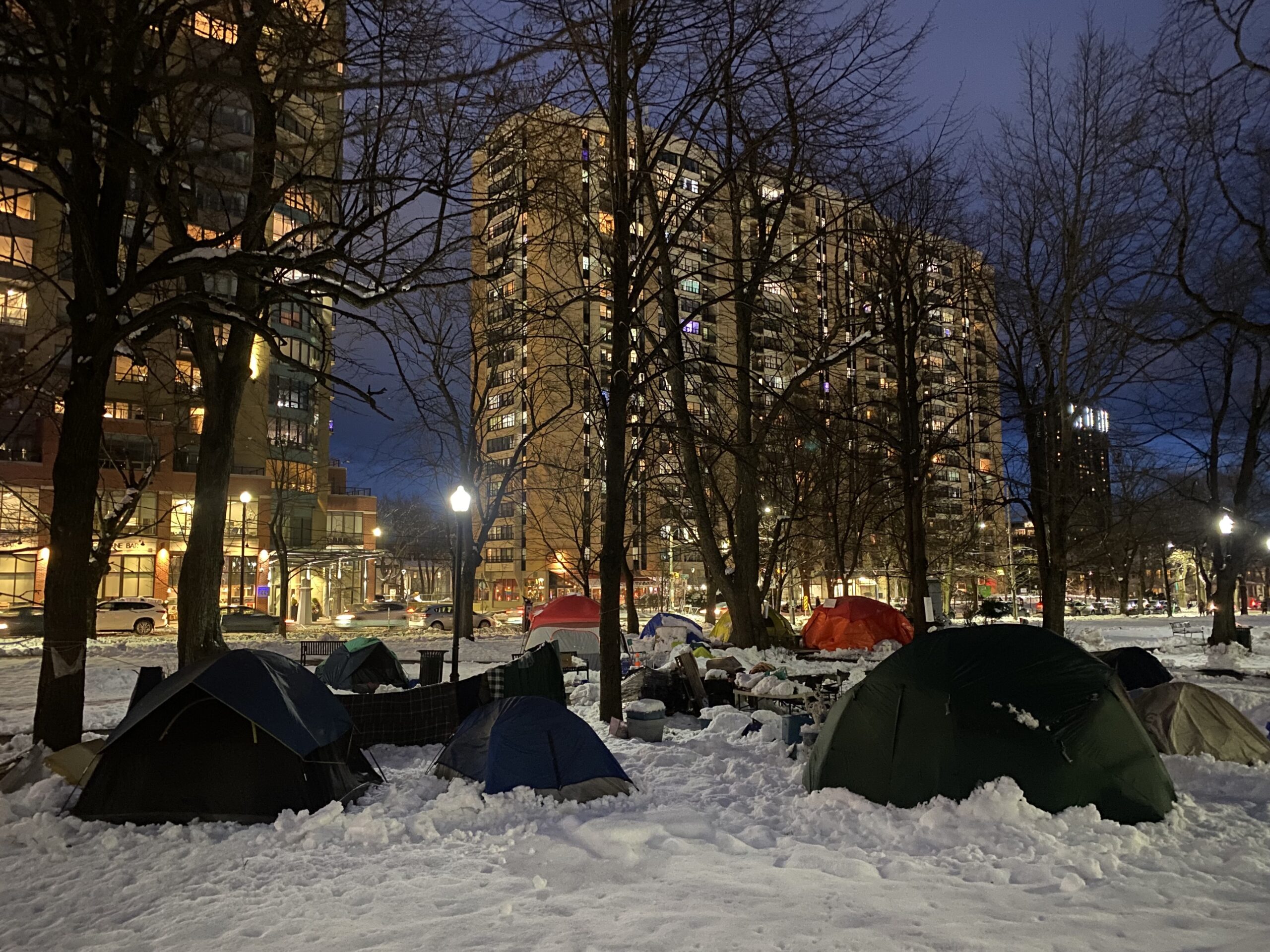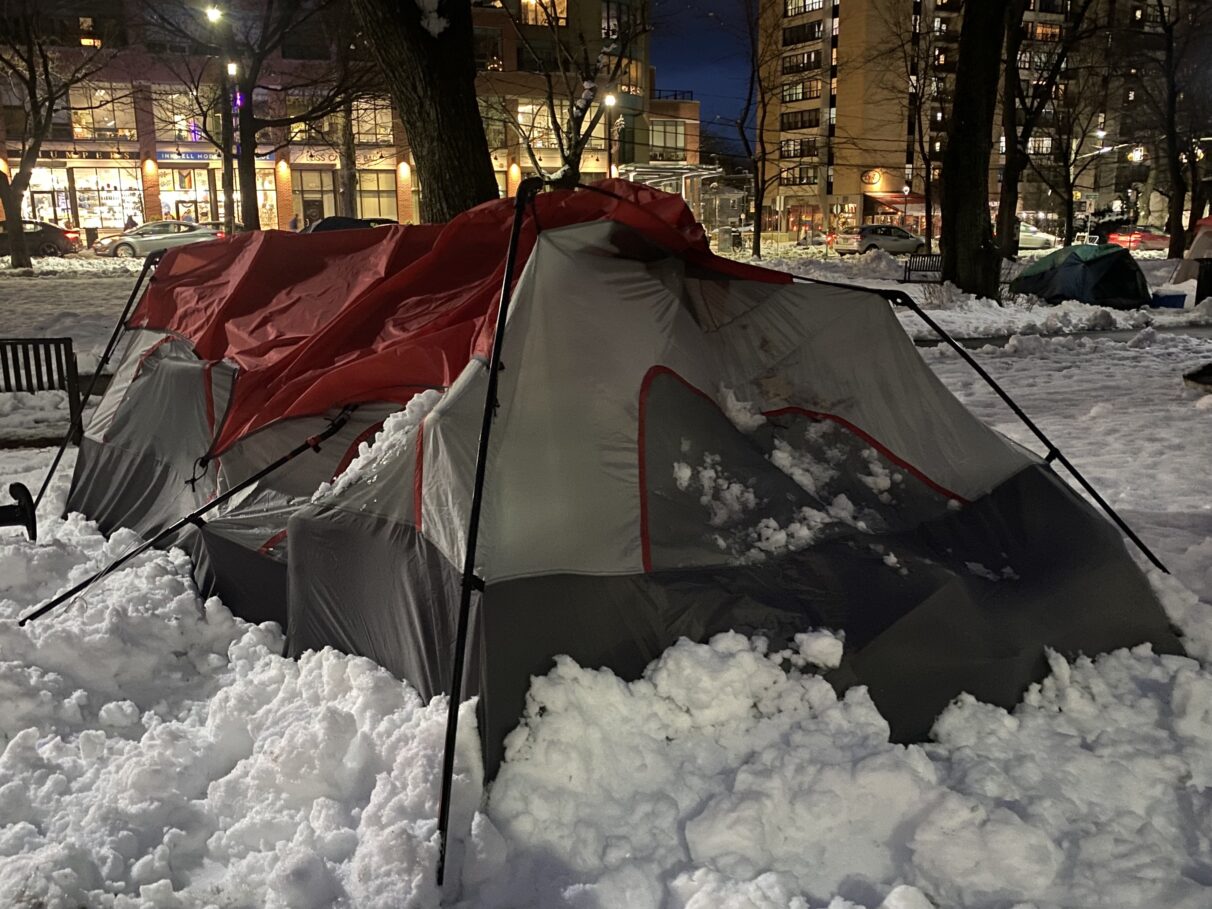Petition calls for central intake line for shelter space
Phone line would consolidate shelter information

caption
Halifax's housing crisis has resulted in more tent sites around the city, like this one at Victoria Park.Amid the rising tensions of the housing crisis, Collins Ellison started a petition calling for a central intake system in Nova Scotia, which would be similar to a phone line created in Toronto.
But people who’ve worked in the field are skeptical.
The petition, named Housing is a Human Right (HIHR), is “primarily focused around housing advocacy. At the moment we’re specifically targeting support of central intake in Nova Scotia,” said Ellison.
Ellison has struggled with homelessness and mental health issues while being in and out of the criminal justice system since 2017. He’s been an active voice in the community surrounding homelessness, policing and income support for the unhoused.
The petition urges “the Government of Nova Scotia to adopt a Central Intake (shelter support) service line to be used in co-ordination with existing 211 services.”
Ellison has been collecting signatures around the city but hasn’t gotten any action from the petition on the provincial level.
He said a central intake line would mean people will be able to call one number to access information about shelter availability throughout the city. Currently, someone looking for a shelter bed might have to make several calls.
Jeff Karabanow, a Dalhousie University professor specializing in homelessness and housing, who has also worked for community organization Out of the Cold, said, “A centralized intake, in theory, sounds phenomenal. And I know it’s been raised a number of times. […] The shelters are the ones that should be making these calls.”
He added Halifax’s street navigators bring a personal touch that a centralized intake system might not always offer.
“Shelters can be pretty aggressive states, and they can be difficult environments for people that are going through things. There’s mental health, addiction dynamics,” said Karabanow.

caption
Monday’s snowstorm caused many tents around the city to collapse, such as this one in Victoria Park.Ellison said the many different shelters and community groups working on the issue make it hard to navigate the system.
“I think the accessibility piece is a huge issue,” Ellison said. “At the moment, even in the Halifax region alone, there are several different organizations, each seemingly with their own different phone numbers that you may have to call. So it can be very difficult to find the right supports at the right time.”
However, Karabanow said, while it would be nice for people, in theory, to be able to book a space, the reality might be “while people have phones, they may not have minutes,” further limiting people’s access to resources.
Halifax Needham MLA Suzy Hansen said many factors have contributed to the problem.
“We know that there is not a huge supply (of housing), the cost of that supply is going up because of the demand, which in turn is why we see a number of evictions, we see a number of folks having higher rents and being charged exorbitant amounts,” added Hansen.
According to Statistics Canada in 2022, Nova Scotia had 14 emergency shelters, 22 transitional housing units and 20 domestic violence shelters.
Currently, 211 exists for people in the community to find supports and services.
“At the moment a lot of folks utilize 211, they call and then 211 will generally redirect to all of these other organizations […], but again, it would just make things easier to be able to call one line,” said Ellison.
Karabanow said there is “a lag of a few years” in the system because of the lack of investments in affordable or public housing.
“That’s horrible for folks to suffer through. We have shelters that are full, which by the way is not a new thing,” he said.
Hansen said the current system isn’t working as well as it should.
“The way that the system works right now, there’s so many hands in the pot that we really need to kind of, you know, streamline it in a way that will work and will be accessible for everyone.”
Karabanow said the input for a new centralized intake system “really should come from the ground up. It should come from folks experiencing homelessness, and folks that are working in that field. […] The people who work in those areas know intimately the population and know who’s best to kind of fit in a particular situation or setting or environment. They also need a voice at the table around this.”
About the author
Gökçe On
Gökçe has been most recently described as someone who is in love with love, so it’s not quite surprising how much they accidentally fell...
